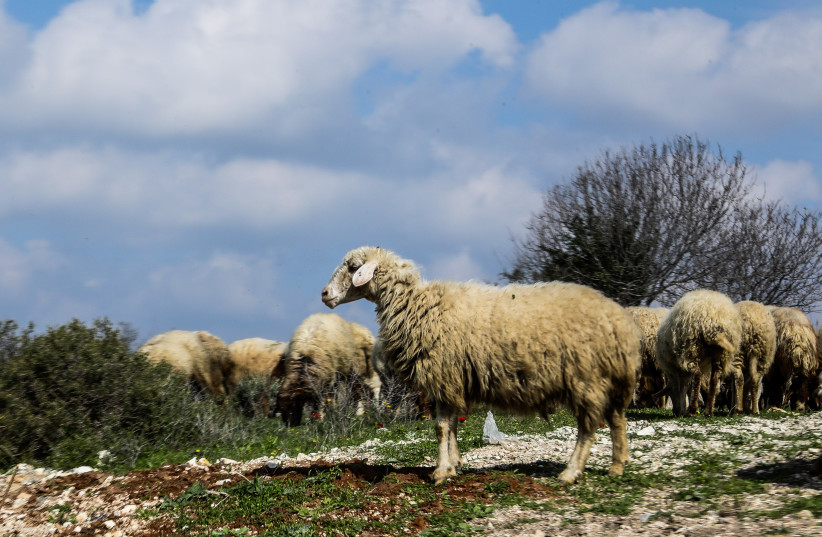Grazing affects many ecosystems, especially in light of climate change and increasing human activity.
Published: JANUARY 23, 2023
An international team of researchers, including Israelis from the Weizmann Institute of Science in Rehovot, have found that contrary to the common assumption, under certain conditions, grazing in desert areas may actually help the ecosystem.
Seventy-seven percent of the world’s agricultural land is devoted to pasture. The field supports billions of people around the world, and its importance is evidenced by the fact that it is related to 10 of the 17 sustainable development goals defined by the UN for the purpose of ensuring the safety and prosperity of humans around the world.
Grazing affects many ecosystems, especially in light of climate change and increasing human activity. Despite the enormous importance, research in the field is limited and focuses mainly on local issues.
A new study led by Prof. Fernando Maestre from the University of Alicante in Spain – with the participation of more than 130 researchers from all over the world – examined 98 grazing sites in 25 countries in all inhabited continents, including Israel. Maestre, a leading biologist, has published more than 230 articles in leading peer-reviewed journals and written five books in his field. The new study on grazing that he led appears in the journal Dryland Ecology under the title “Grazing and ecosystem service delivery in global drylands.”
How does grazing impact the ecosystem?
The study examined how grazing affects the functioning of the ecosystem and its contribution to the environment in areas such as food production, carbon fixation, water absorption and climate-change mitigation. The research focused on arid climate systems, and there is a reason for that – about 78% of the world’s pastures are in areas that are considered arid, and about a billion people rely on them for food production.
Flock of sheep at Tel Yarmuth (credit: MARC ISRAEL SELLEM)
In Israel, the study included, among other things, the area of the Gilead Reservoir in southern Carmel, Beit Nir in the Judean lowlands and Sayeret Shaked Park in the northern Negev.
The study found that in hot deserts, where the precipitation falls mainly in a certain season and not uniformly throughout the year and the amount of vegetation in them is low, intensive grazing harms the benefit provided by the ecosystems. In other words, their ability to produce food, mitigate climate change and more decreases.
On the other hand, in less warm deserts, with precipitation that is evenly distributed throughout the year and diverse vegetation, intensive grazing actually promotes the benefits provided by the ecosystems. Among other things, grazing increases the competition between plant species and thereby contributes to the preservation of ecological diversity, and also prevents fires.
To be able to predict the future of the drying ecosystems that are losing their biodiversity, how these ecosystems work must be understood. “In view of climate change, which leads among other things to the expansion of deserts and their increasing drying, the research insights will help in predicting the consequences of these changes on the functioning of pastures around the world,” said the Dr. Eli Tzaady from Israel’s Agricultural Research Administration and Dr. Ilan Stavi at the Dead Sea and Arava Science Center located in the Tamar Regional Council, Neve Zohar.
https://www.jpost.com/environment-and-climate-change/article-729397

